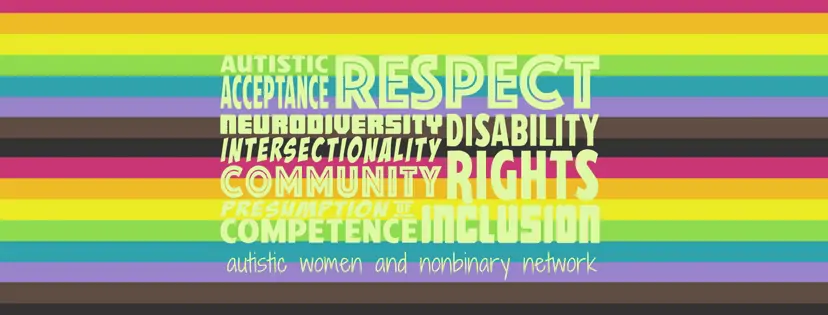
AWN Statement on Rollbacks Impacting Trans and Disability Healthcare
The Autistic Women and Nonbinary Network (AWN) condemns yesterday’s announcement that the Centers for Medicare and Medicaid Services (CMS) is rolling back critical protections for trans and disabled people. Adding to this devastation is that this announcement comes during Pride month and specifically came on the fourth anniversary of the deadly shooting at the Pulse nightclub targeting Black and Latinx queer and trans people.
As a federal agency, CMS is responsible for making regulations that clarify laws passed by Congress. CMS had previously created regulations on the Affordable Care Act, which bans discrimination based on “race, color, national origin, sex, age, or disability.” Those regulations had specifically protected people on the basis of their gender identity, their pregnancy, whether or not they had ever had an abortion, and their ability to communicate fluently in English. These protections ensured that health care providers, state health plans, and health insurance agencies could not discriminate against people from specific marginalized communities, including by denying language access, refusing treatment to trans people, or failing to allow disabled people to use supports of their choosing.
By removing these regulations, CMS and the current administration are sending a clear message – that the civil rights of trans people, people capable of getting pregnant, and disabled people are optional. Even worse, the inaccessible 338-page long document describes the reason for these changes as a move to help “protect” civil rights while it does the exact opposite.
AWN’s community is majority queer, trans, and people of color, and are all disabled. We know and understand the harms that queer, trans, and disabled people face in healthcare settings. Our community members who are both disabled and trans often face extreme discrimination by doctors, therapists, and hospitals, who refuse to provide sensory accessible, culturally competent, and respectful treatment – or who refuse to provide any treatment at all. In the last few months alone, our community has witnessed the deaths of numerous disabled community leaders, many of them also queer, trans, or people of color in addition to being disabled.
A study ten years ago conducted by the National Center for Trans Equality and the National LGBTQ Task Force found that 1 in 5 trans people surveyed had been denied care outright because they were trans, while 28% reported harassment in medical settings, and 50% had to educate their own providers about what it meant to be trans.. Through much of AWN’s work partnerships in research for autistic people in healthcare, we know that autistic people of color and autistic trans people often struggle to find care that respects and understands their needs, which in turn produces unequal outcomes. Now that insurers and medical professionals have an open license to discriminate, we fear the consequences for those who are most vulnerable and marginalized in our community.
Removing nondiscrimination rules opens the door to enabling discrimination in both subtle and overt ways. Doctors may provide subpar care or refuse care knowing that the administration will protect them through its lax interpretation of the law. We already know that many autistic trans people are denied care and support related to their gender identity and expression because of ableist beliefs about their disabilities. When discrimination can be open and flagrant, seeking health care becomes actively dangerous and even more life-threatening for trans and disabled people at the margins of the margins.
AWN strongly disagrees that the prior regulation’s removal changes any legal standards or obligations under the Affordable Care Act. We offer our support and solidarity to the advocates and community members already fighting to reinstate these basic protections, because while the law may not lead us to liberation, it can be a necessary and powerful tool for harm reduction and survival.
